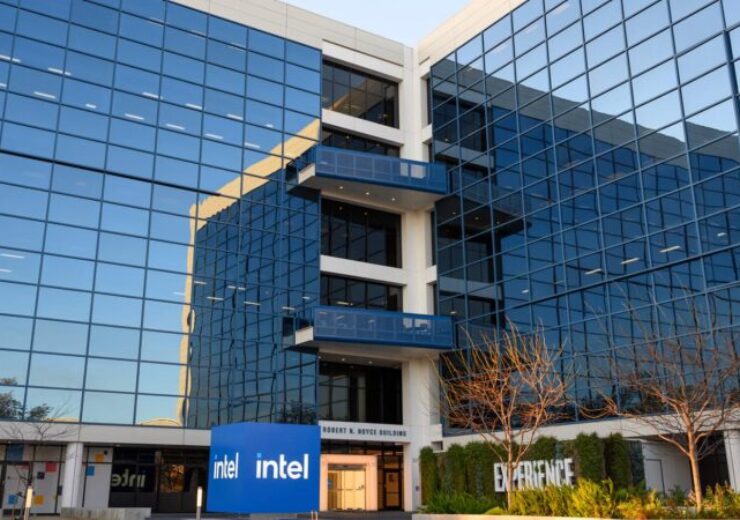The US-based semiconductors company has also announced that Microsoft has selected a chip design to be produced on the Intel 18A process, marking a significant chip design win for Intel

Intel introduces first systems foundry designed for the AI era. (Credit: Intel Corporation)
Intel has announced the launch of Intel Foundry as a more sustainable systems foundry business tailored for the artificial intelligence (AI) era with an aim to establish leadership in technology, resilience, and sustainability.
The chipmaker has also unveiled an extended process technology roadmap that brings in Intel 14A to the company’s node plan along with various specialised node evolutions.
According to the semiconductors company, its five-nodes-in-four-years (5N4Y) process roadmap continues to be on track and will result in the first backside power solution in the industry.
Apart from Intel 14A process technology, the expanded roadmap features specialised node evolutions and introduces new capabilities in Intel Foundry’s advanced system assembly and test (ASAT) services. These enhancements aim to assist customers in achieving their AI objectives.
Intel CEO Pat Gelsinger said: “AI is profoundly transforming the world and how we think about technology and the silicon that powers it.
“This is creating an unprecedented opportunity for the world’s most innovative chip designers and for Intel Foundry, the world’s first systems foundry for the AI era. Together, we can create new markets and revolutionise how the world uses technology to improve people’s lives.”
In addition, Intel has announced a chip design win from Microsoft. The latter has selected a chip design, which is intended to be produced on the Intel 18A process.
Microsoft chairman and CEO Satya Nadella said: “We are in the midst of a very exciting platform shift that will fundamentally transform productivity for every individual organisation and the entire industry.
“To achieve this vision, we need a reliable supply of the most advanced, high-performance and high-quality semiconductors. That’s why we are so excited to work with Intel Foundry, and why we have chosen a chip design that we plan to produce on Intel 18A process.”
Intel stated that its foundry has secured design wins across various process generations, including Intel 18A, Intel 16, and Intel 3. Additionally, there is considerable customer volume for its advanced system assembly and test (ASAT) capabilities, particularly in advanced packaging, said the firm.
The total estimated lifetime deal value of the foundry across wafer and advanced packaging is said to be over $15bn.


